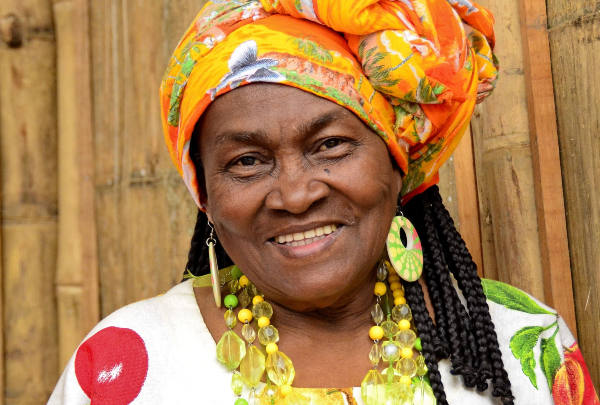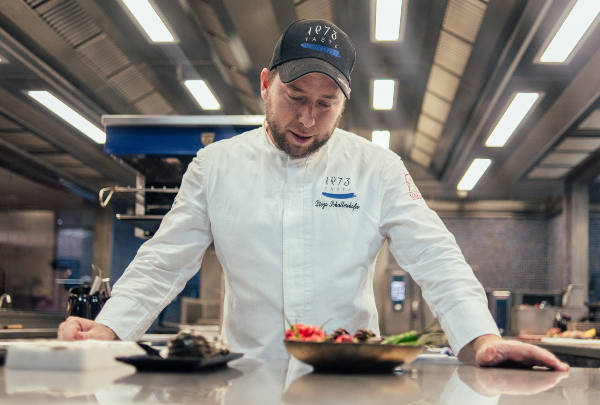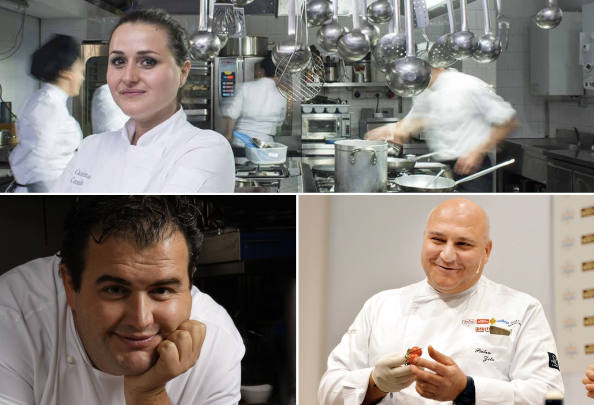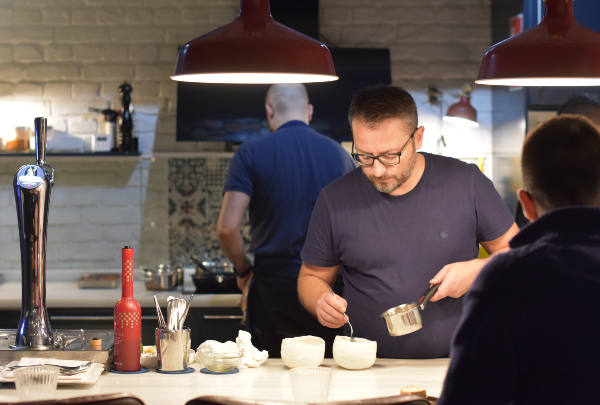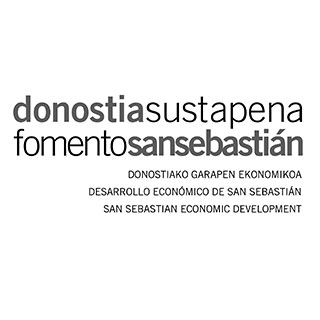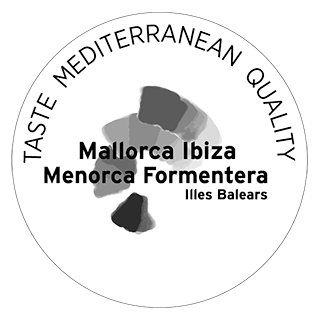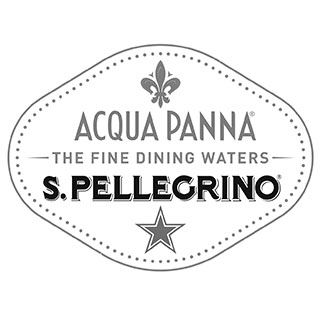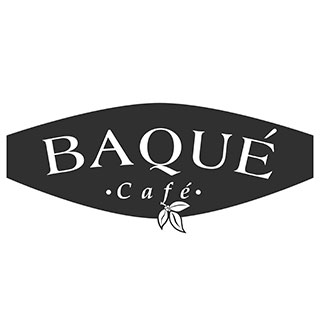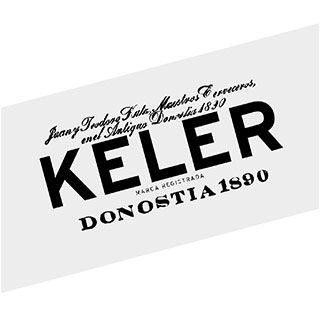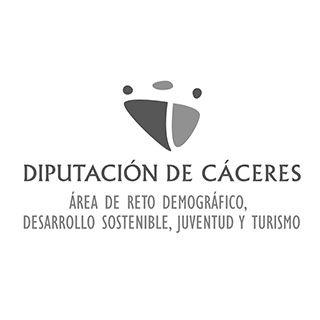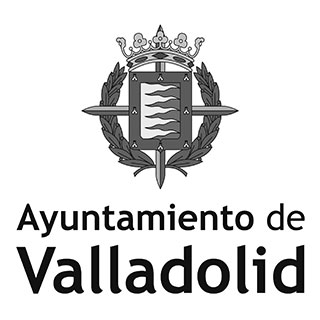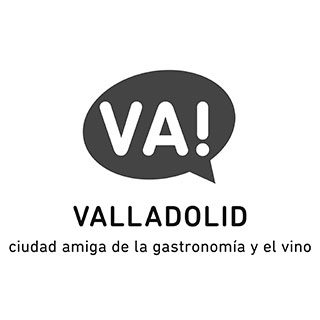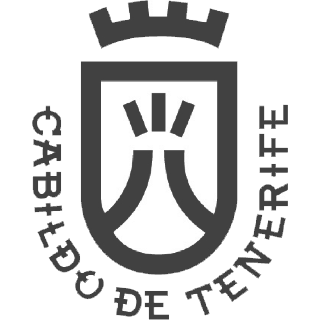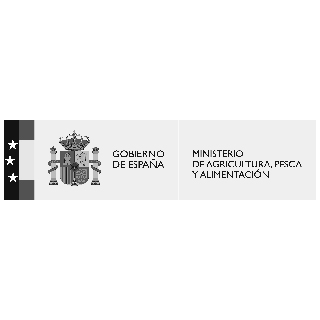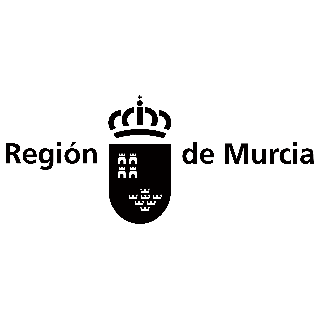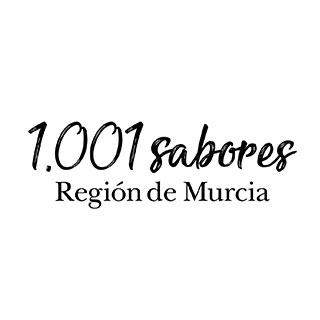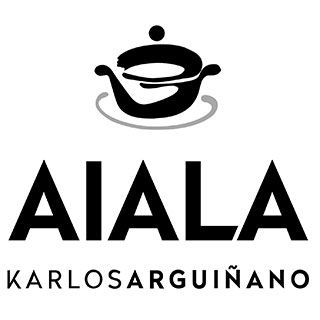Interview
Ignacio Medina: “Our job as journalists is to spark debate and controversy”
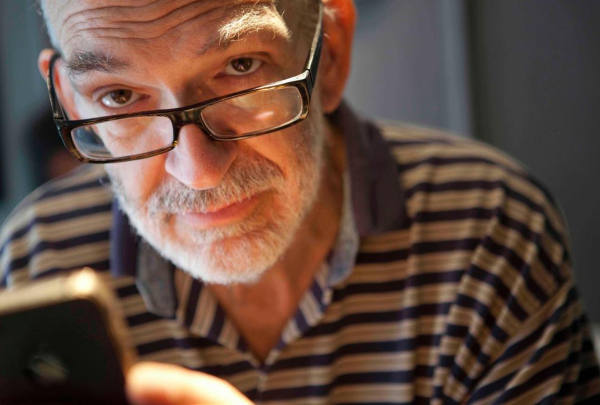
Gastronomic Journalism Award. Gastronomika 2020.
This year, San Sebastian Gastronomika will present the Gastronomic Journalism Award to Ignacio Medina. The knowledge of the profession and the sector that his years of experience in different media, always talking about gastronomy, has given him, allows the Madrid-born journalist to speak plainly. He received the National Gastronomy Award for Best Journalistic Work in 2009 but he is grateful to receive the new award bearing in mind where it comes from, for recognising him for work that nobody knows whether it makes an impact, which is the most important thing: “I don't want posthumous works, I want what I write to have consequences in the world of cooking”. A controversial and outspoken journalist, he has been writing for 40 years, although he now combines this with consultancy work. “You can no longer live just from journalism”.
Medina moved to Peru in 2007 where he grew up “writing in two different languages and for two different audiences”. From Lima, he has seen how Gaston Acurio shook up the gastronomic world and how ceviche has boomed, and how lists of restaurants have harmed restaurants. A critic with 50 Best, “which has turned gastronomy into a business”; with a current role as a chef, “who spends six or seven months a year outside his restaurant doing collaborations”, and with the business drift of journalism, in the midst of a pandemic he is the perfect figure to dissect the past, present and future reality of European and American gastronomy.. Ignacio takes out his pen and starts writing. He does not need to ask questions. How does he know what this is about...
You have criticised a lot of people and institutions from the trenches/all of your columns over the years. Complacency is not for you...
It's not that it's not for me, it's just that I do my job. My job is not to deceive people, it is to force them to change. Our job as journalists is to spark debate and controversy. And debate and controversy lead to reflection, which leads to progress. I need people to discuss cooking, and if they discuss with me, I welcome it. I think that to criticise is to be honest, and the world of gastronomy needs a lot of that, especially in countries like those in Latin America where it has never existed. The links between gastronomy and top companies are very close and create very perverse dynamics in which the journalist becomes a tool in the hands of the chef. And that shouldn’t happen.
You have spent 40 years with your pen in hand. Has the profession of a food journalist changed?
Criticism used to be really critical. There were 40 of us critics all over Spain, and the restaurants were scared to see us arrive. The maître d' served you with trembling hands. Now, criticism does not exist in Latin America and in Spain it is on the rise. And everything has changed. I would tell you that there are many restaurants whose current maximum aspiration is that someone appears in front of them disguised as a gorilla. It seems more like a business, where the boundaries between journalism and communication are blurred.
Isn't this all just an issue of independence driven by money? If you don't get paid enough you are not free.
I don’t know. What I do know is that this is a profession that forces you to make decisions. What should I do? Should I change sofa or go to lunch? This profession requires tremendous investment. All the restaurants I have visited in Paris have been at the end of the month, when I could see that I still had money left in my account. Do I still have some money left? Right, off to Paris to spend it and learn. Doing so was and is an investment in my work.
There will be those who can invest, but is it possible to live from gastronomic journalism alone?
Today you can't live from writing, you can't live from criticism. For the last three years, I myself have had to start working in jobs that have nothing to do with journalism, a profession that had always ensured my livelihood. Now I could no longer live on what I write alone, so I work for large companies on gastronomic consultancy projects, and also on corporate responsibility, helping producers and products in Latin America. I also do books. But it is also true that getting this far, and the fact that these projects come about is thanks to my work in journalism. As I see it, journalism ends up being a tool.
The gastronomic revolution in Peru
Break. You are from Madrid but have been living in Peru for years. How did you get into that new world?
I had reached a point where I was disenchanted. It was at the turn of the century. I was working for the Gourmet Guide, writing books. I had been on many radio stations always talking about gastronomy but my enthusiasm was flagging. I was invited to a press trip to Peru. There I met the director of a magazine who offered me the opportunity to review restaurants in the country. I started doing it three times a year, and I went back and forth. That's how I started my relationship with Peru, in addition to which I started dating a girl from there. It was becoming clear to me that I wanted to live there.
Were you won over by the girl, the people and the cuisine?
I was unhappy here, but what made me fall in love was that I was aware that I was experiencing something that I had never known before. In Spain, in Europe, I had experienced the Nouvelle Cuisine, the rise of the New Basque Cuisine, what happened with Ferran... but there was something happening there that I had not seen, a concept of social gastronomic revolution. I was seeing a country whose flag was its cuisine, which was beginning to raise social issues that had not been seen before. I understood that I was going to see a revolution, which would start in Peru but spread from Latin America. I had no attachment to anywhere, and so I settled there so as not to miss it.
I also realised that when I wrote in Peru I wrote better. By writing in Spanish for two countries that speak different languages, you begin to understand the meaning of each word, and to look for it, because they have to understand you there too, and all over Latin America. There are very different phase structures, and you have to think more about your sentences. You realise that your writing improves when you practice this.
Let's go back to the gastronomic phenomenon in Peru. Was it really spontaneous?
Yes.
Wasn't there any public money?
There was public money when they realised how far it could go. It's true that if there hadn't been public money it wouldn't have got where it did, but everything started from the bottom with the push given by Gaston Acurio. Gaston had become a public figure because of a television programme and he led this movement. Before that, cuisine in Lima was French. Astrid y Gastón came into being as a French bistro, without going any further. But, because of the TV programme, Gaston came into contact with Peruvian culture and products and introduced a couple of Peruvian dishes onto his menu. We are talking about 2005. On top of that, a middle class was beginning to form in the country, which was essential. No middle class, no national cuisine. Everything came together in a process in which Peruvians became proud of their country through their cuisine.
Likewise, Peru's boom was unreal, because it was a process that had no foundations, because it did not yet have and still does not have a consolidated middle class. But it is a process that has spread all over Latin America, particularly to Chile, Argentina, Colombia and Mexico, which do have a stronger middle class. But it is a revolution that cannot be reversed. Can it be replicated in other countries? Of course, but it will take a national self-assessment and a strong middle class, who also believe and want to eat locally, who question what they eat.
The success of ceviche
Until now, it has been an inward-looking revolution; it has not come about in the way that it did in Europe. How did that international jump come about? Even though you criticise 50 Best, did it help?
No, the revolution pre-dated 50 Best. The jump of Peruvian cuisine to international stardom started with ceviche. Peruvians turned a traditional, popular dish, which was nothing more than processing fish that was common to all countries on the Pacific coast, into an avant-garde dish.
Peru believed it, reinvented ceviche and Gaston emerged.
The Gaston phenomenon is very important. One of the consequences of the Gaston phenomenon is the promotion of Peruvian cuisine with public money, and this is done through Mistura. Gaston began to weave international relationships from the first congress he held in Lima called “Peru, Mucho Gusto”. I helped him bring in top chefs such as Xabier Gutiérrez (Arzak) and Marcelo Tejedor (Casa Marcelo). During those years, Gaston met Ferran Adrià, who put him on the advisory board of the Basque Culinary Center. Peru was beginning to be heard. More chefs - the best opinion leaders, by the way, much better than journalists - began to visit and get to know Peru. Ceviche began to appear on Western menus and it began to take off. Therefore, it can be said that it was ceviche that put Peruvian cuisine on the map. Madrid Fusión helped a lot too, bringing in Peruvian chefs.
Another person who must have helped, although later and even though you have already criticised him: Virgilio Martínez
Virgilio is a product of the boom in Peruvian cuisine.
But in reality.
More façade than cooking. Central is a restaurant where every step it takes is a step towards promoting itself. It is a restaurant that has been serving the same 17 dishes for five years. But that happens, as we have said, when your audience is a collector of invoices and photos for Instagram. Besides, as it is worth what it is worth and has the fame it has, after eating at Central are you going to say it is bad?
It is also a restaurant, like many others on the continent, which is very young, with a cuisine that has yet to be developed. There is still a lot of difference between restaurants in Spain and those in South America. We have made idols out of kids who are just starting out. On top of that, many of them are static and, because they have or had a pre-pandemic clientele that put pressure on them, they are not evolving or doing research.
They are living off the wave started by Gaston...
And that is how it's been going, they've hit the coronavirus in the red. They are affected by death. Now, for example, Virgil has lowered the price quite a bit, and Astrid y Gastón is offering menus at $18.
In Spain this is not happening.
No, local customers have not been disregarded here like they have been there.
How do you think Covid will affect the hotel and catering industry you know?
This will be a tragedy for the hotel and catering industry, especially in Latin America, but it will be good for us, it will be a source of opportunity. Smaller businesses will spring up, like Pedro Miguel Schiaffino has done in Lima. He has closed Malabar and opened a small restaurant and fish shop. Now, both there and here, it is time for small menus, for closeness, for informality, for restaurants with medium-high cuisine transformed into bistros, like Barcelona did years ago. Otherwise, they will not survive.
Because what has the pandemic shown? That the restaurant model was failing everywhere. We need to exercise awareness. As a matter of fact, the whole Tickets group is closed until January...
“There are chefs who spend six or seven months a year away from their restaurant doing collaborations”
Journalism, interests, cooking... Let's talk about The World's 50 Best Restaurants. You were on the voting panel but you left. What happened?
I was a voter the first and second year worldwide (2003 and 2004), and the first in Latin America (2012). In the latter case, I had already warned Raquel Rosemberg (also a journalist writing for ‘7canibales’ who died in 2018 and who was the chair of the list for Latin America): ‘I will be your worst enemy’. London didn't like that. I knew the profile of the voting panellists and I knew and I know that it depends on who is voting at which restaurant. In the end the list of voters was changed and I agreed to take part. But then I didn't understand the result. Argentina had 15 restaurants among the best on the continent. Really? What was going on? Raquel was Argentinian and was in charge of the communications for almost all those restaurants. The voters, who were all friends, had agreed to vote a certain way. I said to myself 'this stinks', and I walked away.
You criticise 50 Best but you also flatter them.
50 Best could be a good offer. They have got the formula right, because knowing who is number 2 for example... is what the market wants and that's fine, but they are engaging in strange dynamics like the Best of the Best they have done now. Will the new number one be number one or number 14? Because if Joan Roca, Massima Bottura or Rene Redzepi stop taking part in the competition... Furthermore, their operation is one of the factors that explains why all those restaurants that were full, with a waiting list of months, are now in the red. The pandemic has accelerated it but they were already affected. That was because of the 50 Best dynamic: we no longer look after the restaurant, everything runs on inertia and 95% of the customers are tourists, so we can keep the same menu for five years, as has happened with Central, by the way.
Five years with the same menu?
Five years working with the same tasting menu and without a menu. The customer will not come back. 50 Best has created a dynamic that has changed priorities. Being a chef no longer matters: going to the market, serving your customers... It's true that this happens more in South America, not so much here. In Peru, in the afternoon there is no chef in your restaurant.
Michelin does not operate in South America, but do you think it deserves the same opinion?
The Michelin dynamic forced chefs to stay in the kitchen waiting for the inspector's visit. The 50 Best dynamic forces chefs to travel to get voters. 50 Best is legitimate, and cannot be criticised from a commercial and private point of view, but it can be criticised from a kitchen point of view.
“I want what I write to have consequences in the world of cooking”
Let's change tack out of curiosity. You were also a scriptwriter for Karlos Arguiñano's programme. What was it like to work with him?
Chaotic and fun. I did the first 300 scripts for his programme on Televisión Española. There is no one who can communicate like him, but he is chaotic. It was difficult for me to give him a script which he would follow. And, if you interrupted the recording five times, every time it would start differently. A genius.
Let's go back to journalism. You will receive the “Pau Albornà i Torras” Gastronomic Journalism Award at the next edition of San Sebastian Gastronomika, in the words of the jury, for your “contribution to gastronomic journalism in Latin America over the past ten years”. Are you happy?
For me it is very important, particularly because I am receiving it thanks to my work in Latin America. And I am very happy because it was Pau (Pau Albornà, editor and head of 7canibales until his death in 2012 at the age of 25), with whom I got on well due to his way of understanding cooking and the profession, and because it is San Sebastian Gastronomika, as the first major cooking congress, that has changed the state of things. Receiving a journalism award is a big deal, but receiving an award from Gastronomika is much more.
We journalists do not get any recognition and we live in eternal doubt, because networks are no longer a measure of what you like or dislike and whether or not what you do is worthwhile. For all of these reasons, it's good to know that what you do is read and valued by people. I write mainly for myself, but also to provoke, to make a difference. I want what I write to produce something. I don't want posthumous works, I want what I write to have consequences in the world of cooking. If it doesn't, it's no good.
Medina moved to Peru in 2007 where he grew up “writing in two different languages and for two different audiences”. From Lima, he has seen how Gaston Acurio shook up the gastronomic world and how ceviche has boomed, and how lists of restaurants have harmed restaurants. A critic with 50 Best, “which has turned gastronomy into a business”; with a current role as a chef, “who spends six or seven months a year outside his restaurant doing collaborations”, and with the business drift of journalism, in the midst of a pandemic he is the perfect figure to dissect the past, present and future reality of European and American gastronomy.. Ignacio takes out his pen and starts writing. He does not need to ask questions. How does he know what this is about...
You have criticised a lot of people and institutions from the trenches/all of your columns over the years. Complacency is not for you...
It's not that it's not for me, it's just that I do my job. My job is not to deceive people, it is to force them to change. Our job as journalists is to spark debate and controversy. And debate and controversy lead to reflection, which leads to progress. I need people to discuss cooking, and if they discuss with me, I welcome it. I think that to criticise is to be honest, and the world of gastronomy needs a lot of that, especially in countries like those in Latin America where it has never existed. The links between gastronomy and top companies are very close and create very perverse dynamics in which the journalist becomes a tool in the hands of the chef. And that shouldn’t happen.
You have spent 40 years with your pen in hand. Has the profession of a food journalist changed?
Criticism used to be really critical. There were 40 of us critics all over Spain, and the restaurants were scared to see us arrive. The maître d' served you with trembling hands. Now, criticism does not exist in Latin America and in Spain it is on the rise. And everything has changed. I would tell you that there are many restaurants whose current maximum aspiration is that someone appears in front of them disguised as a gorilla. It seems more like a business, where the boundaries between journalism and communication are blurred.
Isn't this all just an issue of independence driven by money? If you don't get paid enough you are not free.
I don’t know. What I do know is that this is a profession that forces you to make decisions. What should I do? Should I change sofa or go to lunch? This profession requires tremendous investment. All the restaurants I have visited in Paris have been at the end of the month, when I could see that I still had money left in my account. Do I still have some money left? Right, off to Paris to spend it and learn. Doing so was and is an investment in my work.
There will be those who can invest, but is it possible to live from gastronomic journalism alone?
Today you can't live from writing, you can't live from criticism. For the last three years, I myself have had to start working in jobs that have nothing to do with journalism, a profession that had always ensured my livelihood. Now I could no longer live on what I write alone, so I work for large companies on gastronomic consultancy projects, and also on corporate responsibility, helping producers and products in Latin America. I also do books. But it is also true that getting this far, and the fact that these projects come about is thanks to my work in journalism. As I see it, journalism ends up being a tool.
The gastronomic revolution in Peru
Break. You are from Madrid but have been living in Peru for years. How did you get into that new world?
I had reached a point where I was disenchanted. It was at the turn of the century. I was working for the Gourmet Guide, writing books. I had been on many radio stations always talking about gastronomy but my enthusiasm was flagging. I was invited to a press trip to Peru. There I met the director of a magazine who offered me the opportunity to review restaurants in the country. I started doing it three times a year, and I went back and forth. That's how I started my relationship with Peru, in addition to which I started dating a girl from there. It was becoming clear to me that I wanted to live there.
Were you won over by the girl, the people and the cuisine?
I was unhappy here, but what made me fall in love was that I was aware that I was experiencing something that I had never known before. In Spain, in Europe, I had experienced the Nouvelle Cuisine, the rise of the New Basque Cuisine, what happened with Ferran... but there was something happening there that I had not seen, a concept of social gastronomic revolution. I was seeing a country whose flag was its cuisine, which was beginning to raise social issues that had not been seen before. I understood that I was going to see a revolution, which would start in Peru but spread from Latin America. I had no attachment to anywhere, and so I settled there so as not to miss it.
I also realised that when I wrote in Peru I wrote better. By writing in Spanish for two countries that speak different languages, you begin to understand the meaning of each word, and to look for it, because they have to understand you there too, and all over Latin America. There are very different phase structures, and you have to think more about your sentences. You realise that your writing improves when you practice this.
Let's go back to the gastronomic phenomenon in Peru. Was it really spontaneous?
Yes.
Wasn't there any public money?
There was public money when they realised how far it could go. It's true that if there hadn't been public money it wouldn't have got where it did, but everything started from the bottom with the push given by Gaston Acurio. Gaston had become a public figure because of a television programme and he led this movement. Before that, cuisine in Lima was French. Astrid y Gastón came into being as a French bistro, without going any further. But, because of the TV programme, Gaston came into contact with Peruvian culture and products and introduced a couple of Peruvian dishes onto his menu. We are talking about 2005. On top of that, a middle class was beginning to form in the country, which was essential. No middle class, no national cuisine. Everything came together in a process in which Peruvians became proud of their country through their cuisine.
Likewise, Peru's boom was unreal, because it was a process that had no foundations, because it did not yet have and still does not have a consolidated middle class. But it is a process that has spread all over Latin America, particularly to Chile, Argentina, Colombia and Mexico, which do have a stronger middle class. But it is a revolution that cannot be reversed. Can it be replicated in other countries? Of course, but it will take a national self-assessment and a strong middle class, who also believe and want to eat locally, who question what they eat.
The success of ceviche
Until now, it has been an inward-looking revolution; it has not come about in the way that it did in Europe. How did that international jump come about? Even though you criticise 50 Best, did it help?
No, the revolution pre-dated 50 Best. The jump of Peruvian cuisine to international stardom started with ceviche. Peruvians turned a traditional, popular dish, which was nothing more than processing fish that was common to all countries on the Pacific coast, into an avant-garde dish.
Peru believed it, reinvented ceviche and Gaston emerged.
The Gaston phenomenon is very important. One of the consequences of the Gaston phenomenon is the promotion of Peruvian cuisine with public money, and this is done through Mistura. Gaston began to weave international relationships from the first congress he held in Lima called “Peru, Mucho Gusto”. I helped him bring in top chefs such as Xabier Gutiérrez (Arzak) and Marcelo Tejedor (Casa Marcelo). During those years, Gaston met Ferran Adrià, who put him on the advisory board of the Basque Culinary Center. Peru was beginning to be heard. More chefs - the best opinion leaders, by the way, much better than journalists - began to visit and get to know Peru. Ceviche began to appear on Western menus and it began to take off. Therefore, it can be said that it was ceviche that put Peruvian cuisine on the map. Madrid Fusión helped a lot too, bringing in Peruvian chefs.
Another person who must have helped, although later and even though you have already criticised him: Virgilio Martínez
Virgilio is a product of the boom in Peruvian cuisine.
But in reality.
More façade than cooking. Central is a restaurant where every step it takes is a step towards promoting itself. It is a restaurant that has been serving the same 17 dishes for five years. But that happens, as we have said, when your audience is a collector of invoices and photos for Instagram. Besides, as it is worth what it is worth and has the fame it has, after eating at Central are you going to say it is bad?
It is also a restaurant, like many others on the continent, which is very young, with a cuisine that has yet to be developed. There is still a lot of difference between restaurants in Spain and those in South America. We have made idols out of kids who are just starting out. On top of that, many of them are static and, because they have or had a pre-pandemic clientele that put pressure on them, they are not evolving or doing research.
They are living off the wave started by Gaston...
And that is how it's been going, they've hit the coronavirus in the red. They are affected by death. Now, for example, Virgil has lowered the price quite a bit, and Astrid y Gastón is offering menus at $18.
In Spain this is not happening.
No, local customers have not been disregarded here like they have been there.
How do you think Covid will affect the hotel and catering industry you know?
This will be a tragedy for the hotel and catering industry, especially in Latin America, but it will be good for us, it will be a source of opportunity. Smaller businesses will spring up, like Pedro Miguel Schiaffino has done in Lima. He has closed Malabar and opened a small restaurant and fish shop. Now, both there and here, it is time for small menus, for closeness, for informality, for restaurants with medium-high cuisine transformed into bistros, like Barcelona did years ago. Otherwise, they will not survive.
Because what has the pandemic shown? That the restaurant model was failing everywhere. We need to exercise awareness. As a matter of fact, the whole Tickets group is closed until January...
“There are chefs who spend six or seven months a year away from their restaurant doing collaborations”
Journalism, interests, cooking... Let's talk about The World's 50 Best Restaurants. You were on the voting panel but you left. What happened?
I was a voter the first and second year worldwide (2003 and 2004), and the first in Latin America (2012). In the latter case, I had already warned Raquel Rosemberg (also a journalist writing for ‘7canibales’ who died in 2018 and who was the chair of the list for Latin America): ‘I will be your worst enemy’. London didn't like that. I knew the profile of the voting panellists and I knew and I know that it depends on who is voting at which restaurant. In the end the list of voters was changed and I agreed to take part. But then I didn't understand the result. Argentina had 15 restaurants among the best on the continent. Really? What was going on? Raquel was Argentinian and was in charge of the communications for almost all those restaurants. The voters, who were all friends, had agreed to vote a certain way. I said to myself 'this stinks', and I walked away.
You criticise 50 Best but you also flatter them.
50 Best could be a good offer. They have got the formula right, because knowing who is number 2 for example... is what the market wants and that's fine, but they are engaging in strange dynamics like the Best of the Best they have done now. Will the new number one be number one or number 14? Because if Joan Roca, Massima Bottura or Rene Redzepi stop taking part in the competition... Furthermore, their operation is one of the factors that explains why all those restaurants that were full, with a waiting list of months, are now in the red. The pandemic has accelerated it but they were already affected. That was because of the 50 Best dynamic: we no longer look after the restaurant, everything runs on inertia and 95% of the customers are tourists, so we can keep the same menu for five years, as has happened with Central, by the way.
Five years with the same menu?
Five years working with the same tasting menu and without a menu. The customer will not come back. 50 Best has created a dynamic that has changed priorities. Being a chef no longer matters: going to the market, serving your customers... It's true that this happens more in South America, not so much here. In Peru, in the afternoon there is no chef in your restaurant.
Michelin does not operate in South America, but do you think it deserves the same opinion?
The Michelin dynamic forced chefs to stay in the kitchen waiting for the inspector's visit. The 50 Best dynamic forces chefs to travel to get voters. 50 Best is legitimate, and cannot be criticised from a commercial and private point of view, but it can be criticised from a kitchen point of view.
“I want what I write to have consequences in the world of cooking”
Let's change tack out of curiosity. You were also a scriptwriter for Karlos Arguiñano's programme. What was it like to work with him?
Chaotic and fun. I did the first 300 scripts for his programme on Televisión Española. There is no one who can communicate like him, but he is chaotic. It was difficult for me to give him a script which he would follow. And, if you interrupted the recording five times, every time it would start differently. A genius.
Let's go back to journalism. You will receive the “Pau Albornà i Torras” Gastronomic Journalism Award at the next edition of San Sebastian Gastronomika, in the words of the jury, for your “contribution to gastronomic journalism in Latin America over the past ten years”. Are you happy?
For me it is very important, particularly because I am receiving it thanks to my work in Latin America. And I am very happy because it was Pau (Pau Albornà, editor and head of 7canibales until his death in 2012 at the age of 25), with whom I got on well due to his way of understanding cooking and the profession, and because it is San Sebastian Gastronomika, as the first major cooking congress, that has changed the state of things. Receiving a journalism award is a big deal, but receiving an award from Gastronomika is much more.
We journalists do not get any recognition and we live in eternal doubt, because networks are no longer a measure of what you like or dislike and whether or not what you do is worthwhile. For all of these reasons, it's good to know that what you do is read and valued by people. I write mainly for myself, but also to provoke, to make a difference. I want what I write to produce something. I don't want posthumous works, I want what I write to have consequences in the world of cooking. If it doesn't, it's no good.
.jpg)
